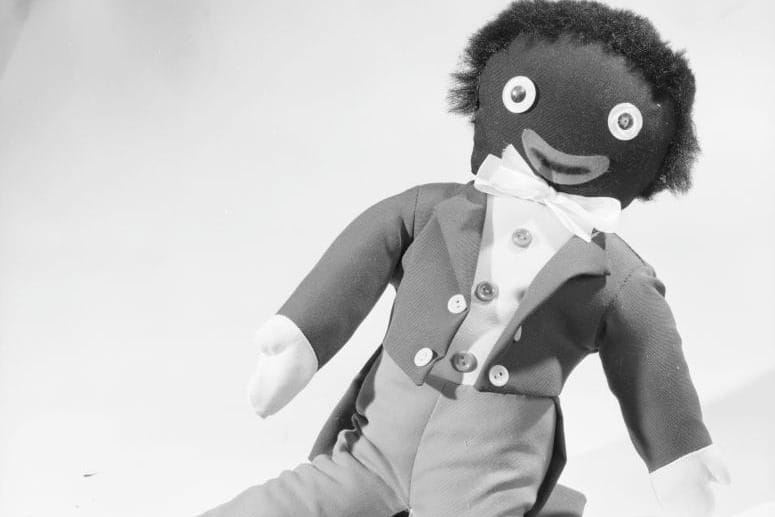“Blackness is not a costume” is an assertion numerous Black people have made. And yet, some folks have worn blackface despite its offense. Minstrel shows, which began in the 1830s, featured White actors who blackened their faces, typically using shoe polish and burnt cork to mock the physical characteristics and mannerisms of Black people. These performances rose in popularity after the Civil War. According to the Smithsonian, “these performances characterized blacks as lazy, ignorant, superstitious, hypersexual, and prone to thievery and cowardice.” They sought to codify the racial concept of whiteness by portraying Blackness “as its antithesis.” By portraying Black characters in a negative light, these shows offered a justification for their subjugation in American society.
While most now consider blackface a shameful pastime confined to the realm of Jim Crow, there are some examples of White people continuing this practice in the modern era. For instance, blackfishing refers to someone who portrays themselves as Black by changing their appearance or speech patterns. Like minstrel show actors, these performers darken their skin, typically with make-up and tanning. Their goal is to be indistinguishable from a black person. One analysis of blackfishing by Instagram influencers suggested the practice is performative. “Racialized bodies and aesthetics are rendered accessories themselves, able to be adorned and shed at a whim,” Wesley E. Stevens published in Social Media + Society. While some White influencers reduce blackness to an aesthetic they exploit to garner support, they can quickly shed this persona to enjoy the social benefits of whiteness.
Wearing blackface is a tradition that continues, typically at Halloween costume parties, where guests are expected to dress like a celebrity, historical, or fictional character. There’s nothing wrong with a White person admiring a Black person and wanting to dress in their likeness. Nevertheless, when someone darkens their skin tone and mocks the mannerisms of Black people, they are performing just as minstrel show actors. And none of this is necessary. For instance, if you want to dress like former President Obama, you can wear a tan suit. Those who follow politics will get the joke. But, if, instead, you choose to darken your complexion, you should know this will be considered blackface. And attending a Halloween party doesn’t make this behavior acceptable. Remember, minstrel shows were always presented as comedy — so arguing that these parties are a time for fun and festivity doesn’t, for instance, change the racist implications of blackface.
While wearing blackface is generally shunned in the post-civil rights era, costume parties offer a thin veil of plausible deniability. White partygoers can wear dark-colored makeup and mock Black people just as minstrel show actors once did, all the while claiming they’re not racist. Of course, not all White people participate in the practice. Yet, there are always a few who keep this tradition alive and remind us of the prevalence of anti-black racism. Touré wrote in the Grio last year, “Dear white people, this Halloween, for once, do not do blackface,” practically pleading for White Americans to stop engaging in this distasteful tradition. Nevertheless, it’s unlikely the White people who needed to hear this message were listening or willing to read the article. Those deciding to wear blackface in this day and age have indeed evaded sound guidance.
Black people have asked White people to stop wearing blackface over the years, but the tradition continues for a few reasons. Some genuinely lack cultural competency. They don’t have someone in their inner circle or group chat who would reject the idea fresh out of the gate. However, others wear blackface despite the annual warnings for a much more nefarious reason — to taunt, belittle, and demean Black people. Regardless of their intent, wearing blackface fosters an environment where racism is socially acceptable. This, of course, endangers Black people. For instance, researchers found a relationship between the endorsement of racist stereotypes and judgments regarding criminal behavior and punishment (Hurwitz & Peffley, 1997), indicating that those who believed myths about Black people were more likely to agree with harsher punishments against defendants. In another study, Jardina and Piston (2022) found “dehumanizing attitudes toward Black people — can powerfully shape candidate evaluations and voting decisions.”
While minstrel shows have long since left their perch of decency in the eyes of most Americans, some have continued to carry on this tradition of blackface, albeit in more subtle ways. We must remember that stereotyping is not merely an effort to disparage those in a lower social position and reduce them to negative characteristics. It’s also a way of hardening negative attitudes toward racial minorities by shining a light on their differences. For example, in 2006, a New York Congressman, Mike Lawler, wore blackface when he attended a college Halloween party as Michael Jackson. Of course, he could have easily dressed as the King of Pop by wearing his iconic military-style jacket and shimmery white gloves. Pulling off the look doesn’t require someone to darken their skin color. But that's rational thinking and his act is beyond rational.
Black people can say, “Blackness is not a costume,” til we’re blue in the face, but if White people refuse to listen, the practice will continue. Only, in this version of blackface, racism is denied rather than embraced. For instance, in 2021, a Brevard County firefighter, Jake Johnson, wore blackface to a Halloween party, claiming he was dressed as Denzel Washington. Needless to say, he didn’t favor the award-winning actor. A few weeks later, he returned for “light duty,” and denied allegations that he was racist. Unlike those who proudly expressed racist attitudes during Jim Crow, some White people in the modern era wear blackface while denying racism as a motive. However, regardless of someone’s willingness to acknowledge the harm, wearing blackface is a tradition rooted in anti-black racism. Efforts to portray the decision as a comedic premise are nothing new — they’re aligned with traditional minstrel performances, which sought to reduce blackness to nothing more than a costume.
